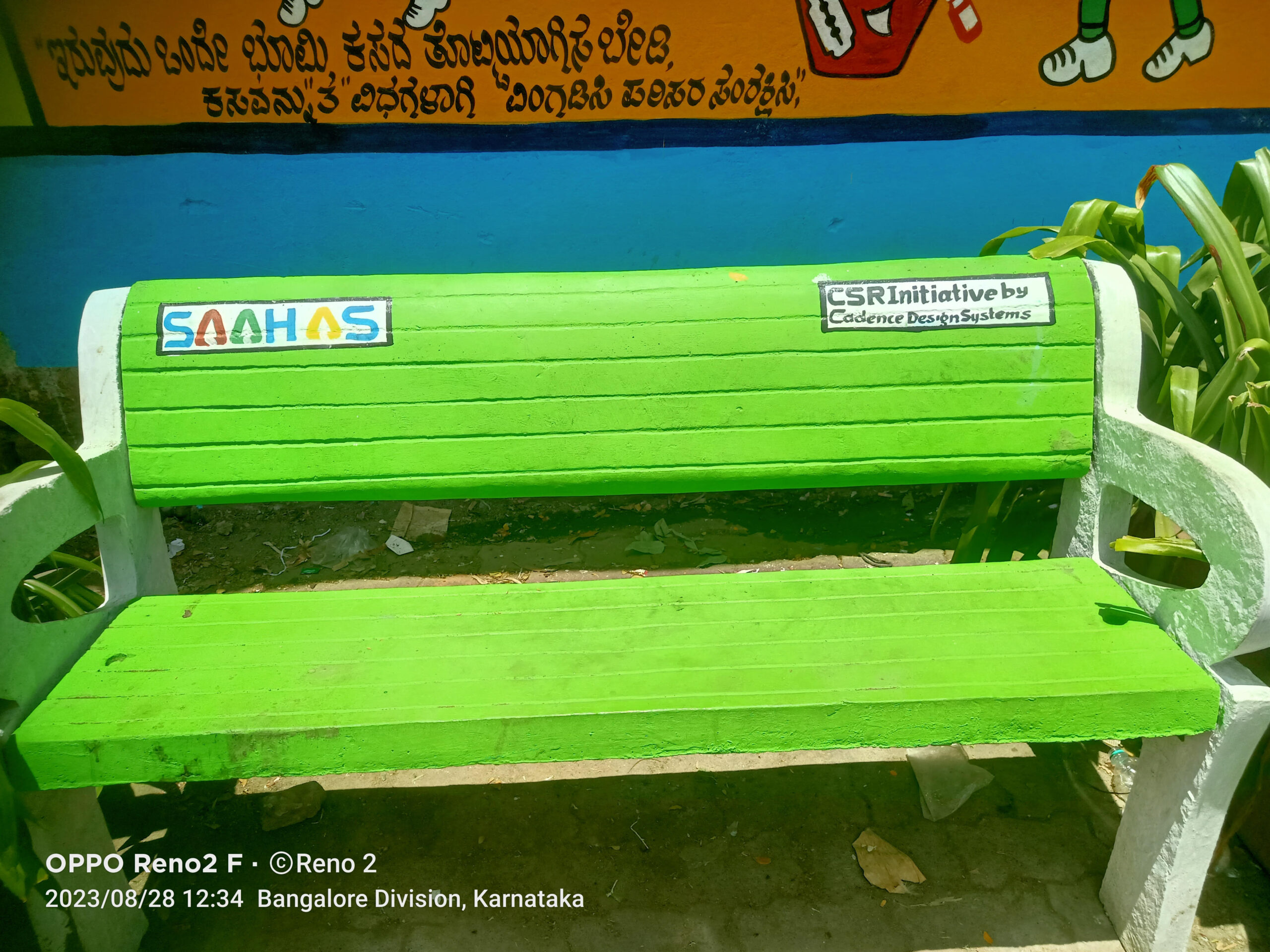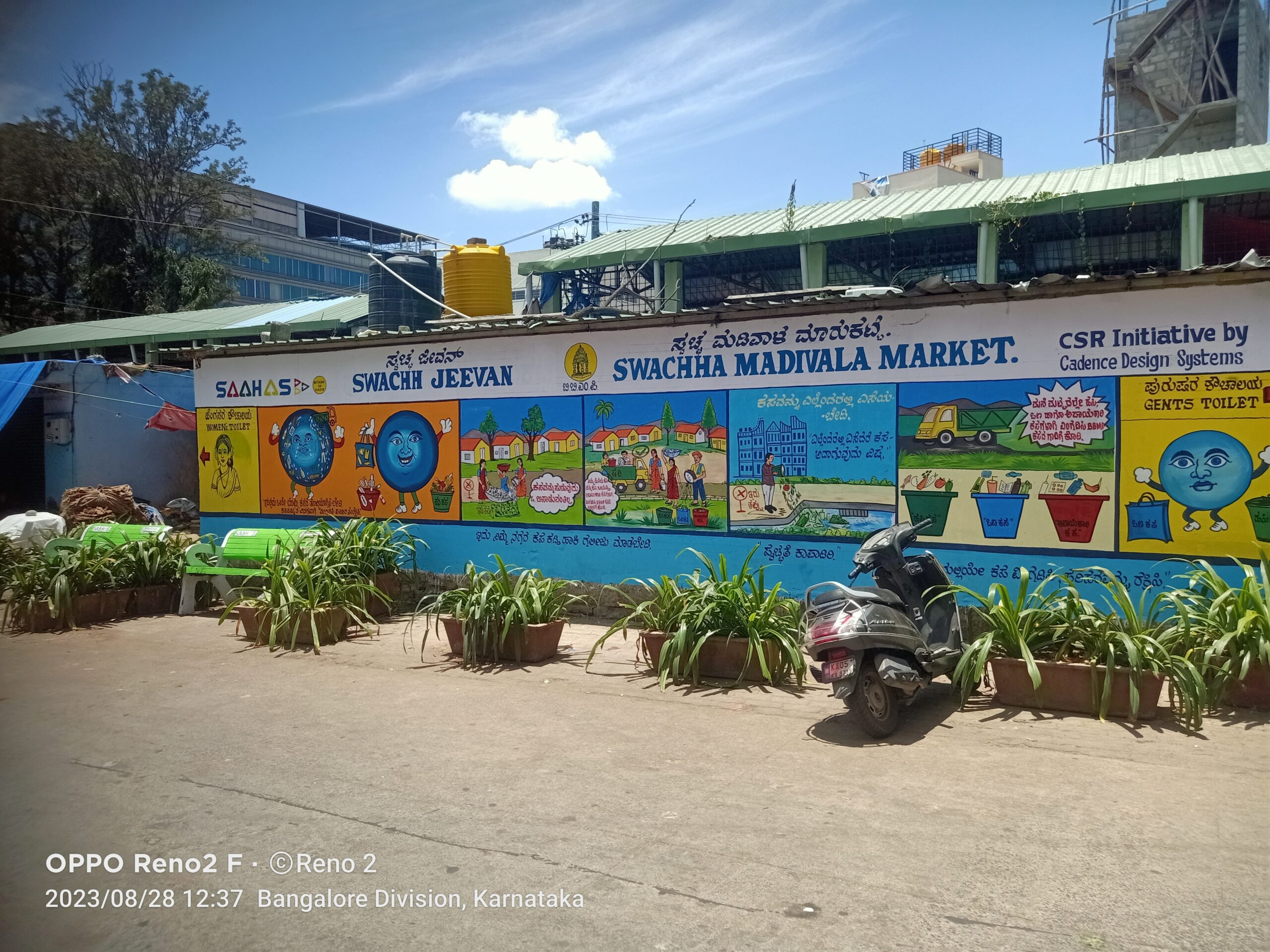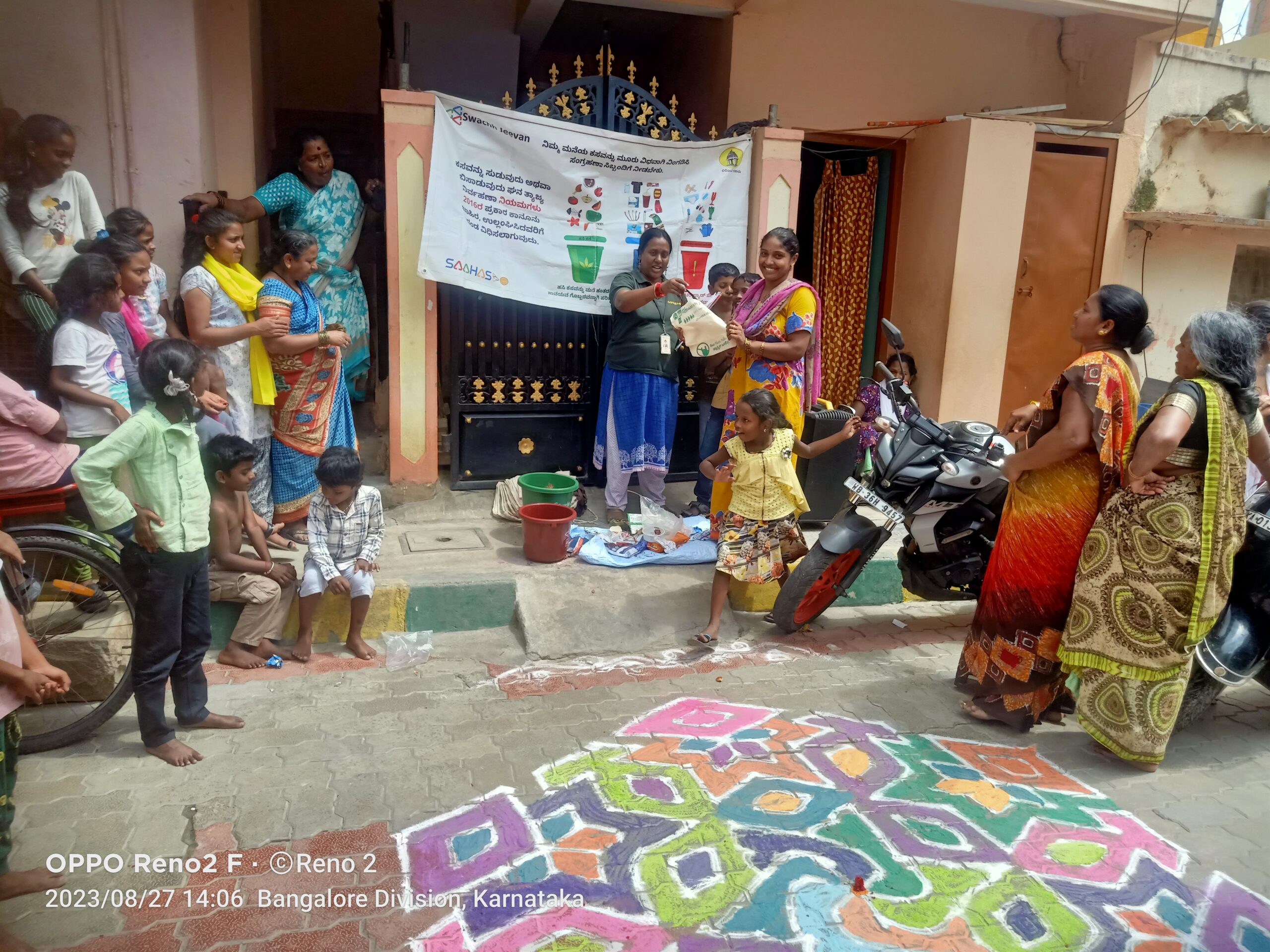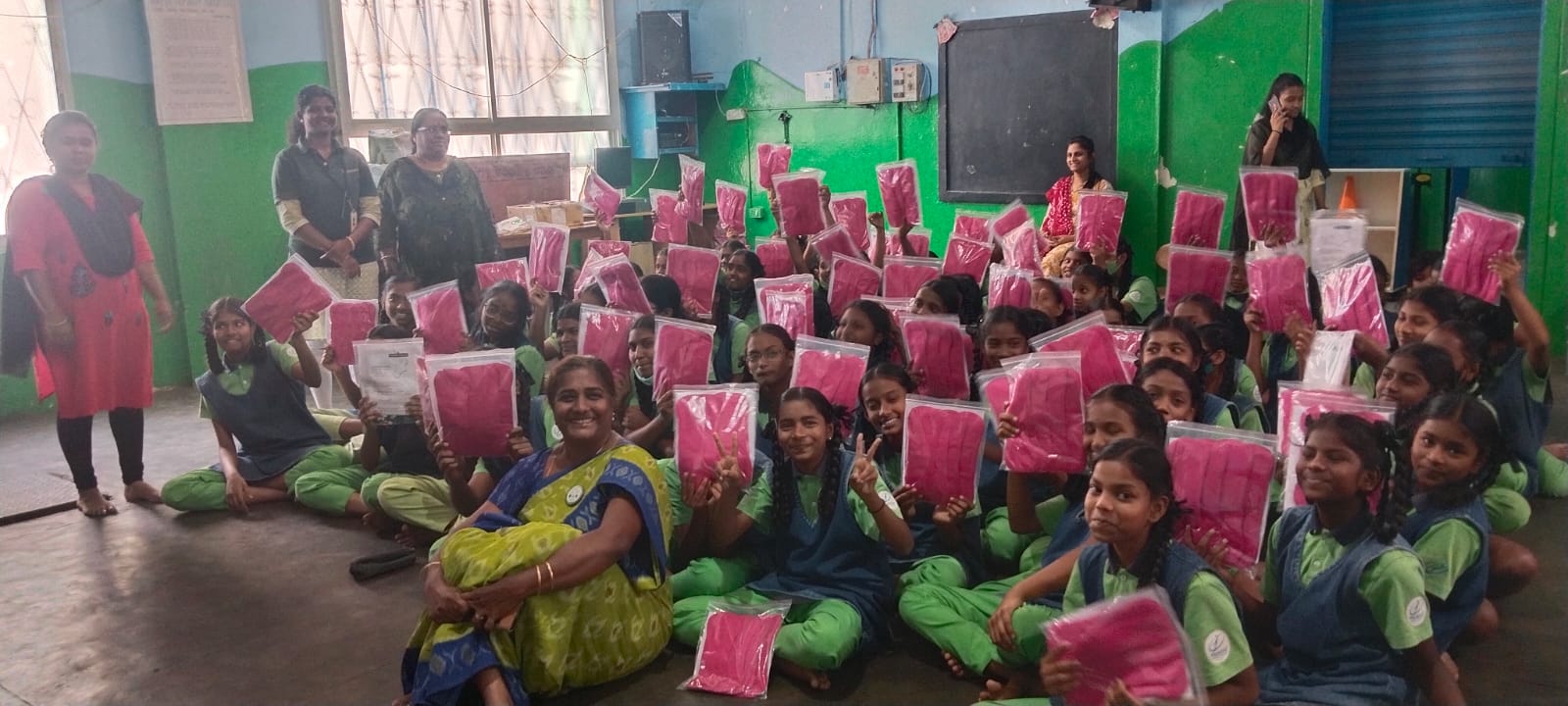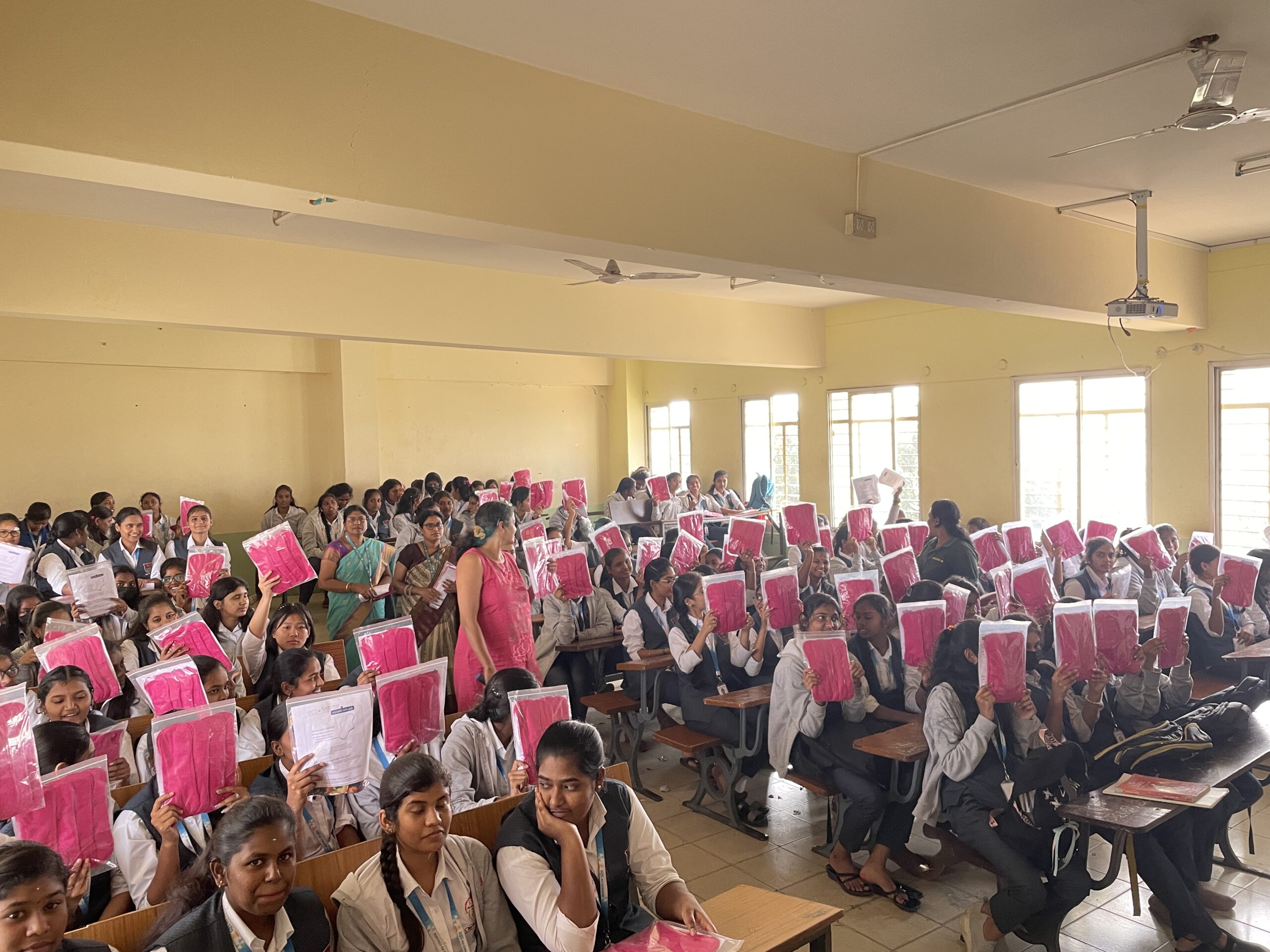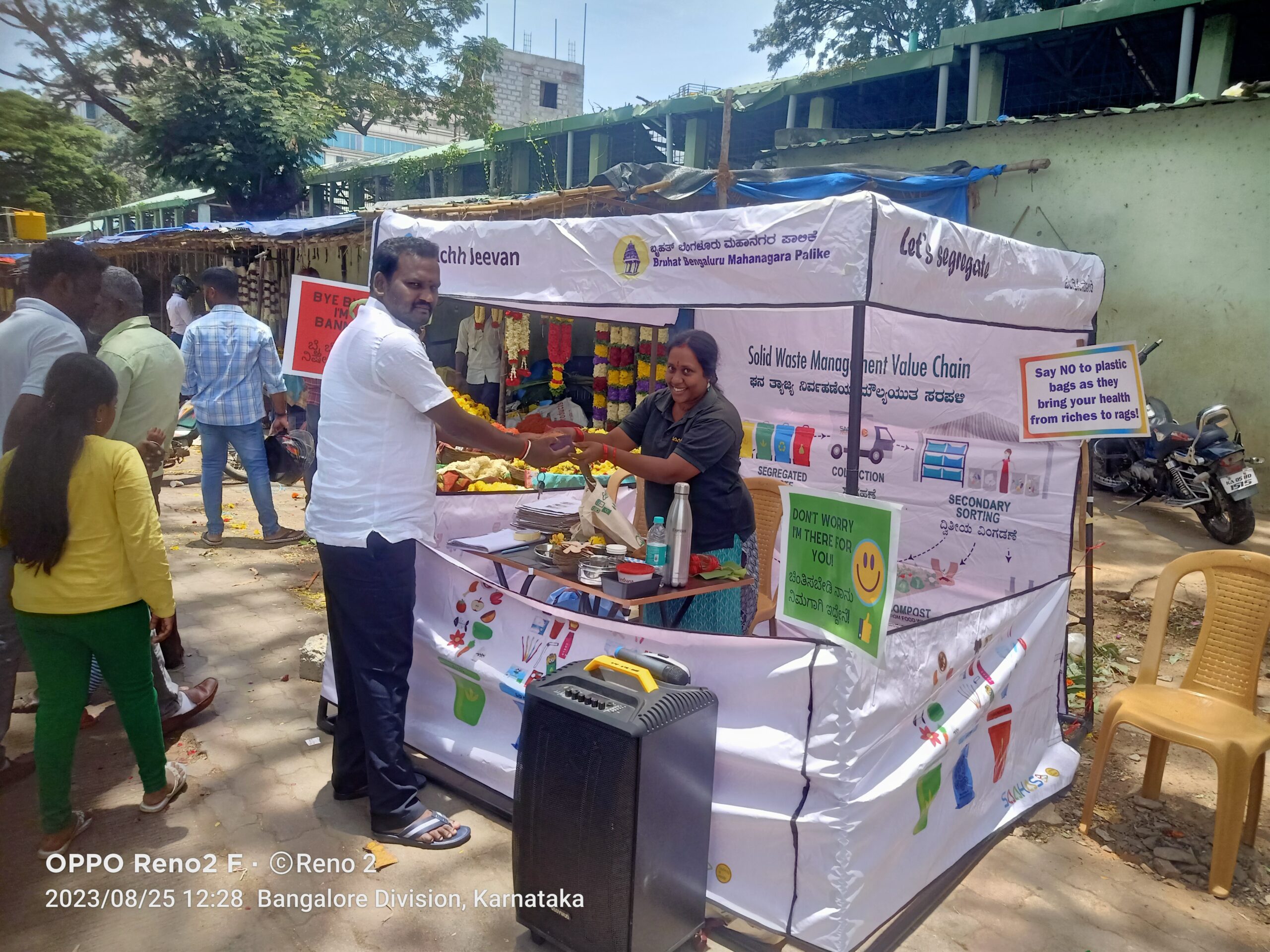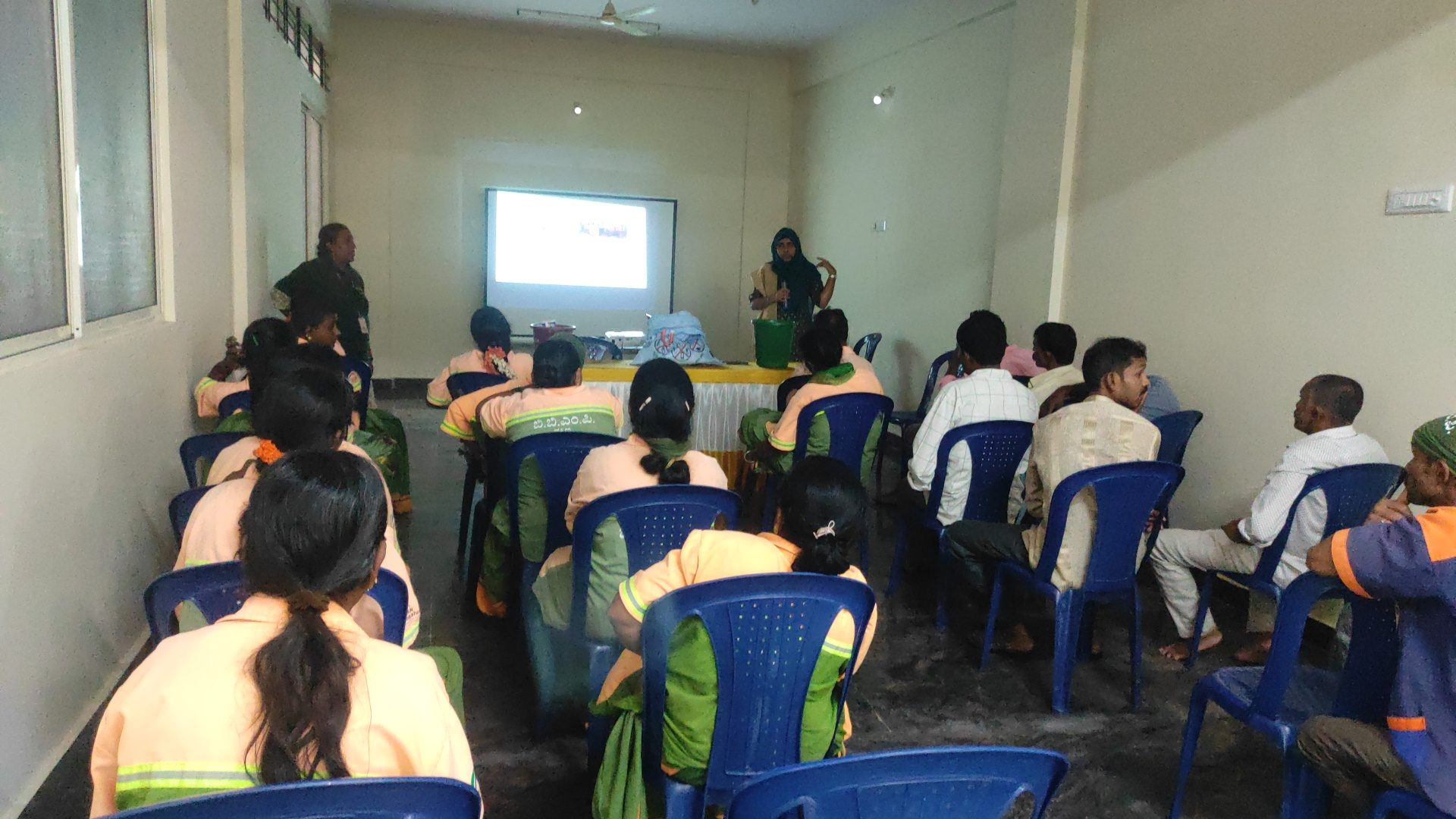
Supported By

Swachh Jeevan
Closed

Supported By

Sustainable and low-carbon solid waste Management in low-income areas of Bangalore
Location
Bangalore
Supported By
Cadence Design Systems (India) Private Limited
Focus Areas
Awareness and Behavioural Change, Capacity building and handholding
Duration
April 2021 to March 2024
Coverage
4000+ low-income households
Target
Segregation percentage >75%, setting up biogas unit for 2TPD wet waste
State
Karnataka
Key stakeholders
Community and Urban Local Body
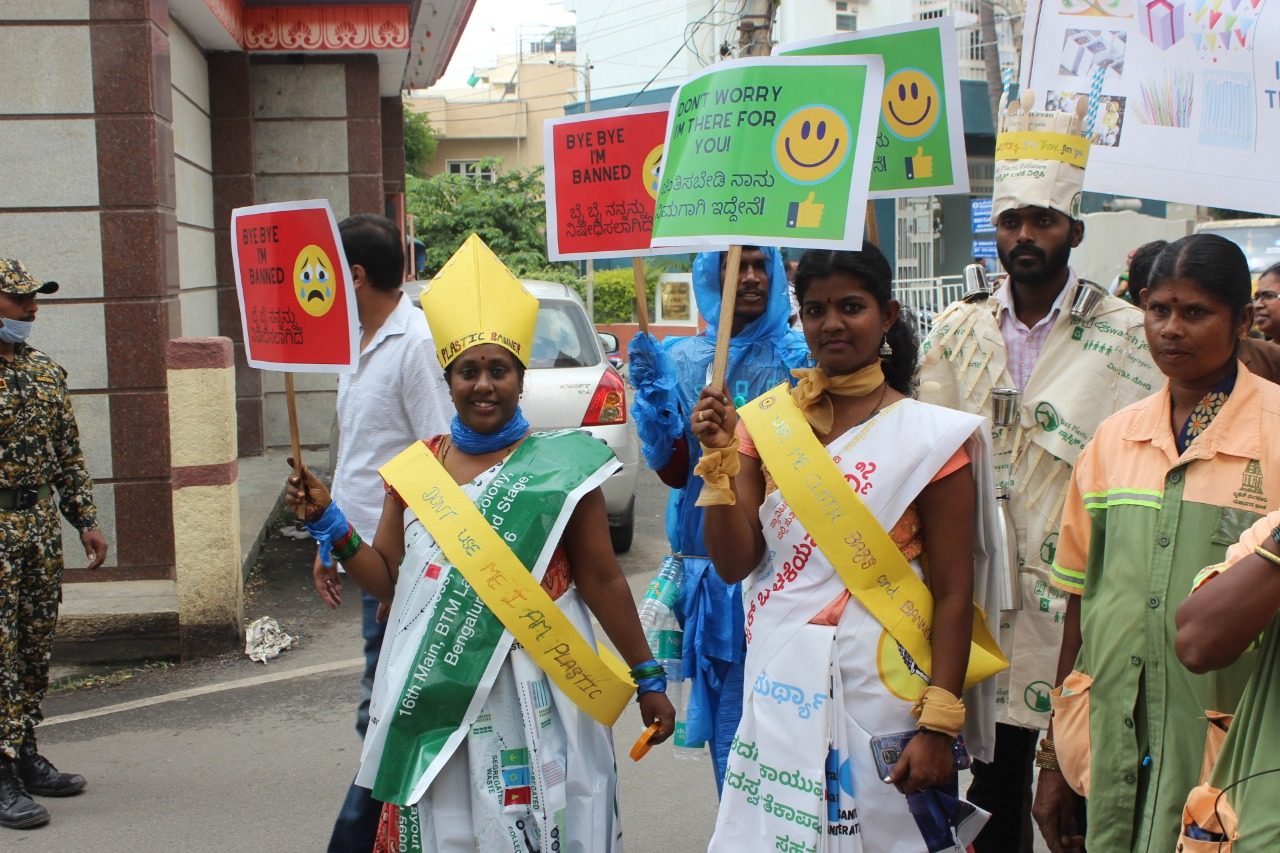
Background:
In most residential areas, especially the low-middle income ones, other more essential needs like water and electricity take priority over SWM. But this leads to a situation where there is poor hygiene, the areas are often surrounded by open dumps, and the drains and water Bodies are filled with plastic, resulting in severe health impacts on the people staying there. There is high population density, poor access for collection vehicles/ trolleys, etc. and the Municipality does not provide door-to-door collection in most slums. There is also low sensitization towards practices such as source segregation.
Providing robust waste collection services is especially critical in slums and low-income areas where improper solid waste management is making the local population extremely vulnerable to diseases caused by land, water, and air pollution.
Objectives:
The objective of this project was to work in low-income areas of Bangalore and implement source segregation to drive resource recovery. To demonstrate low-carbon waste processing, a decentralized biogas unit was set up to process the biodegradable waste generated by the community. Collection coverage was improved to ensure that all areas of the colonies were serviced by the waste collection staff. In order to ensure the sustenance of the practices set up under the process, the local BBMP staff and the sanitation staff were engaged through training and awareness activities.
As part of waste reduction efforts, the promotion of sustainable menstruation products and the distribution of cloth bags made from textile waste were carried out.
